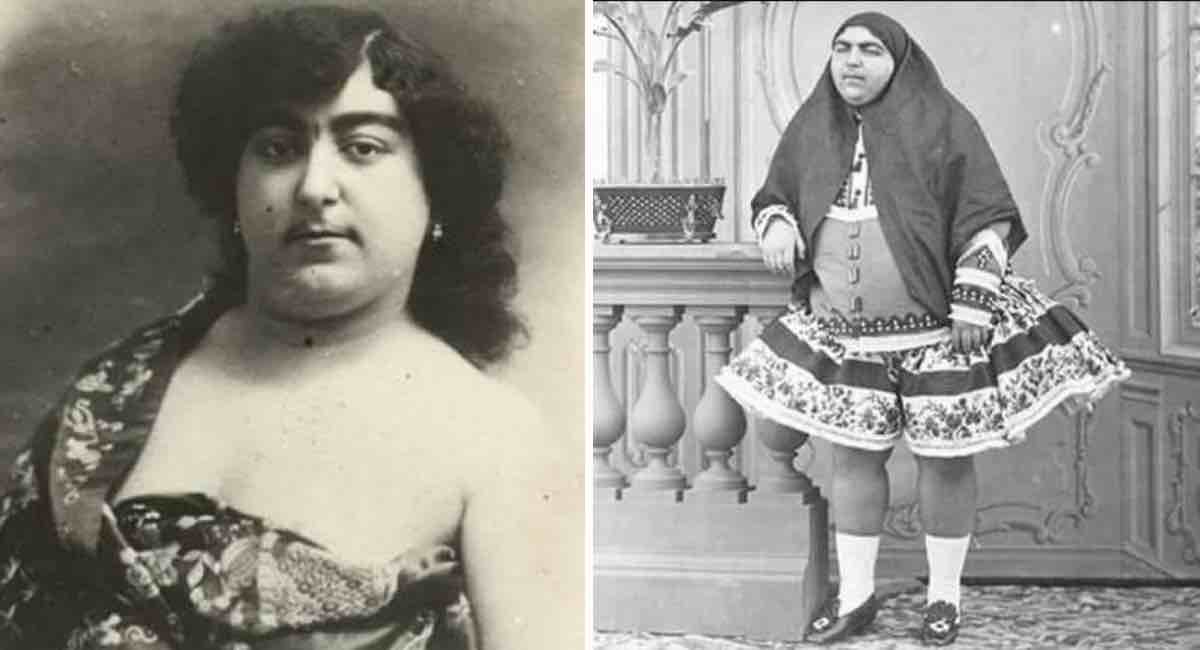
The Female Unibrow Is Back VICE
Zahra Khanom Tadj es-Saltaneh (1883-1936) was a Persian princess and memoirist of the Qajar Dynasty, a daughter of Naser al-Din Shah, the King of Persia from 1843 to May 1896 by his wife Turan es-Saltaneh. She was married to Amir Hussein Khan Shoja'-al Saltaneh and had four children, two daughters and two sons..
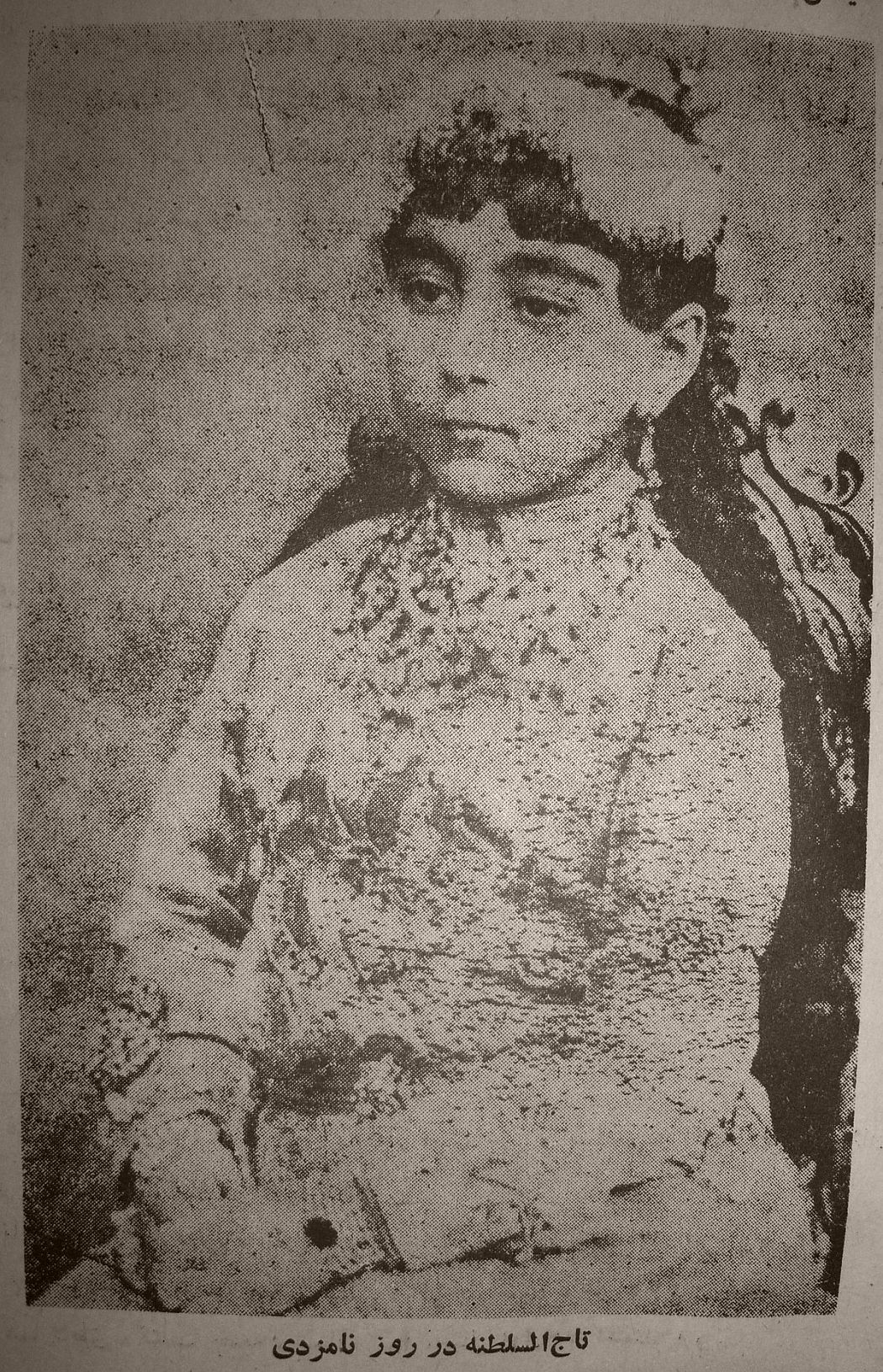
Vintage Zahra Khanom Tadj esSaltaneh Persian princess MONOVISIONS
The first is Zahra Khanom Tadj es-Saltaneh, daughter of Naser al-Din Shah Qajar, King of Persia in the late 19th century. Zahra was born in 1883 and as the daughter of the King, she was very respected by the population. The second woman is actually Princess Fatemeh Khanum "'Esmat al-Dowleh", an early Princess of the Royal Persian family.

Portraits of Zahra Khanom Tadj esSaltaneh, the Beauty Symbol of Persia
Zahra Khanom or Taj al-Saltaneh (1884 - 25 January 1936; Persian: تاجالسلطنه) also known as Princess Qajar, was a princess of the Qajar dynasty, known as a feminist, a women's rights activist and a memoirist.She was the daughter of Naser al-Din Shah, the King of Persia from 1848 to May 1896. She was the love interest of Yousef Abdu Aref Qazvini who wrote his poem Fe eh ya Qajar.
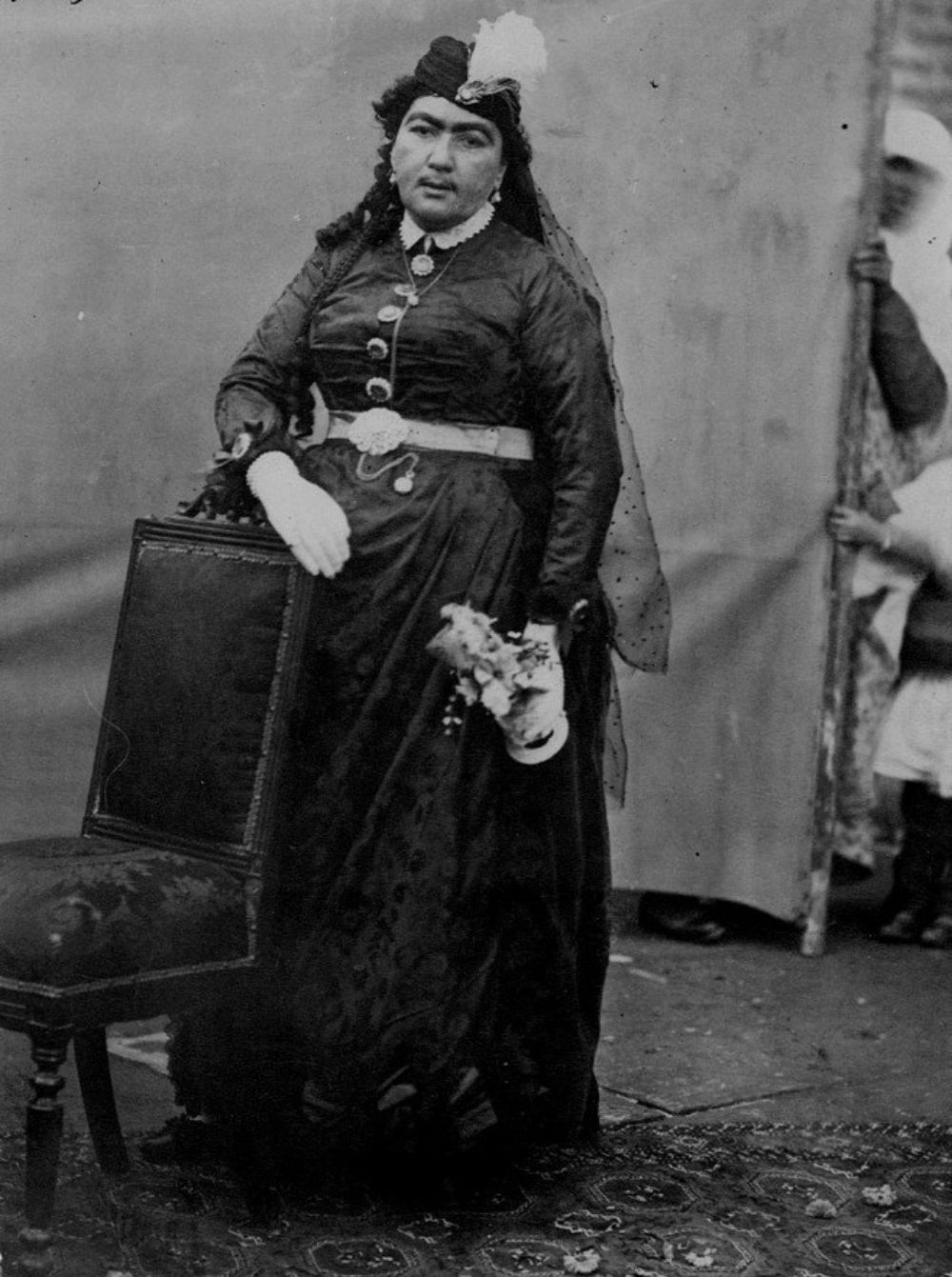
Portraits of Zahra Khanom Tadj esSaltaneh, the Beauty Symbol of Persia
Taj Saltaneh (1883 - 1936) was a Persian princess and memoirist of the Qajar Dynasty, a daughter of Naser al-Din Shah, the King of Persia from 1843 to May 1896 by his wife Turan es-Saltaneh. She was married to Amir Hussein Khan Shoja'-al Saltaneh and had four children, two daughters and two sons.

Portraits of Zahra Khanom Tadj esSaltaneh, the Beauty Symbol of Persia
December 17, 2023. Facebook page. Feast your eyes on princess Zahra Khanom Tadj es-Saltaneh (1883 - 1936) who was considered the ultimate symbol of beauty in Persia during the early 1900s. So much in fact, the rumor has it that a total of 13 young men killed themselves because she rejected their love.

Portraits of Zahra Khanom Tadj esSaltaneh, the Beauty Symbol of Persia
Taj Saltaneh or Tāj al-Salṭanah (1883 - 25 January 1936; Template:Lang-fa), was a Persian princess and memoirist of the Qajar Dynasty, a daughter of Naser al-Din Shah, the King of Persia from 1843 to May 1896 by his wife Turan es-Saltaneh. She was the love interest of the Persian poet Aref Qazvini, who wrote his poem Ey Taj for her.. Taj Saltaneh was a trailblazer for women's rights in.

Portraits of Zahra Khanom Tadj esSaltaneh, the Beauty Symbol of Persia
Saltaneh or Tāj al-Salṭanah was a princess of the Qajar Dynasty, known as a feminist, a women's rights activist and a memoirist. She was the daughter of Nas.

Portraits of Zahra Khanom Tadj esSaltaneh, the Beauty Symbol of Persia
Her full name was Zahra Khanom Tadj es-Saltaneh (1883-1936). She was the daughter of the King of Persia, Naser al-Din Shah. She was the memoirist of the Qajar Dynasty. The Qajar dynasty was an Iranian royal dynasty of Turkic origin, specifically from the Qajar tribe, ruling over Iran from 1789 to 1925.

Portraits of Zahra Khanom Tadj esSaltaneh, the Beauty Symbol of Persia
The woman memes call Princess Qajar is Zahra Khanom Tadj es-Saltaneh, and she was born in 1883. Her father was Naser al-Din Shah Qajar, the King of Persia. The Qajar Dynasty ruled over Iran from 1789 to 1925. Princess Qajar was extremely accomplished. She was a painter, writer, musician, intellectual, and activist .

Portraits of Zahra Khanom Tadj esSaltaneh, the Beauty Symbol of Persia
Princess Zahra Khanom Tadj es-Saltaneh or Taj Saltaneh was the princess of Persia, the daughter of Naser al-Din Shah, the King of Persia, the present day Iran. She was considered a symbol of beauty and perfection and was very popular in her time. She was in a very high demand and had 145 suitors of high nobility.

Portraits of Zahra Khanom Tadj esSaltaneh, the Beauty Symbol of Persia
Zahra Khanum Taj al-Saltanah, the daughter of Maryam Turan al-Saltanah and Nasir al-Din Shah Qajar, was born on February 4,1884. She was the twelfth daughter of Nasir al-Din Shah. Taj al-Saltanah married Hasan Khan Shujaʻ al-Saltanah (the son of Muhammad Baqir Khan Sardar Akram) on November 19, 1893, when she was ten years old.
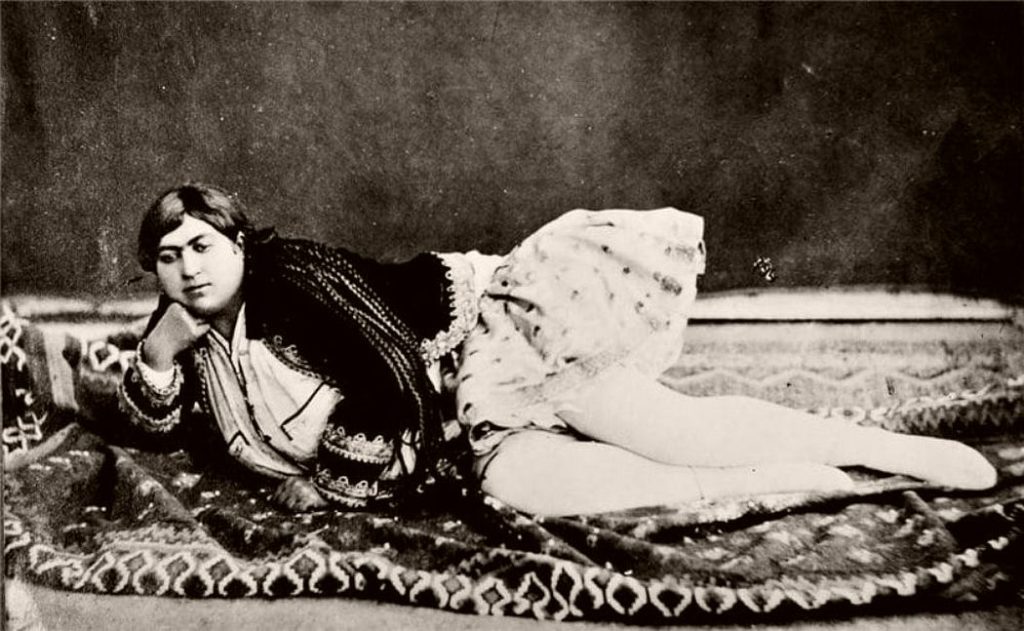
Vintage Zahra Khanom Tadj esSaltaneh Persian princess MONOVISIONS
Persian Beauty Standards Were Really…. Special 100 Years Ago… (9 pics) Take a look at princess Zahra Khanom Tadj es-Saltaneh (1883 - 1936), a prominent history figure and Persian symbol of beauty during the early 1900s. So much in fact, the rumor has it that a total of 13 young men killed themselves because she rejected their love.

Ella era considerada la mujer más bella del mundo
Zahra Khanom Tadj es-Saltaneh. Zahra Khanom or Taj al-Saltaneh (1884 - 25 January 1936; Persian: تاجالسلطنه) also known as princess Qajar, was a princess of the Qajar dynasty, known as a feminist, a women's rights activist and a memoirist. She was the daughter of Naser al-Din Shah, the King of Persia from 1848 to May 1896.

Portraits of Zahra Khanom Tadj esSaltaneh, the Beauty Symbol of Persia
Zahra Khanom Tadj es-Saltaneh, an Iranian princess from the Qajar dynasty, was once considered to be a beauty icon. Her striking features and poise made her a sought-after subject of photographs and paintings in the late 19th century. Her beauty was celebrated not only in Iran but also in Europe, where she became known as the "Persian Venus."

Portraits of Zahra Khanom Tadj esSaltaneh, the Beauty Symbol of Persia
Zahra Khanom Tadj es-Saltaneh (1883-1936) was a Persian princess and memoirist of the Qajar Dynasty, a daughter of Naser al-Din Shah, the King of Persia from 1843 to May 1896 by his wife Turan es-Saltaneh. She was married to Amir Hussein Khan Shoja'-al Saltaneh and had four children, two daughters and two sons. They later divorced.
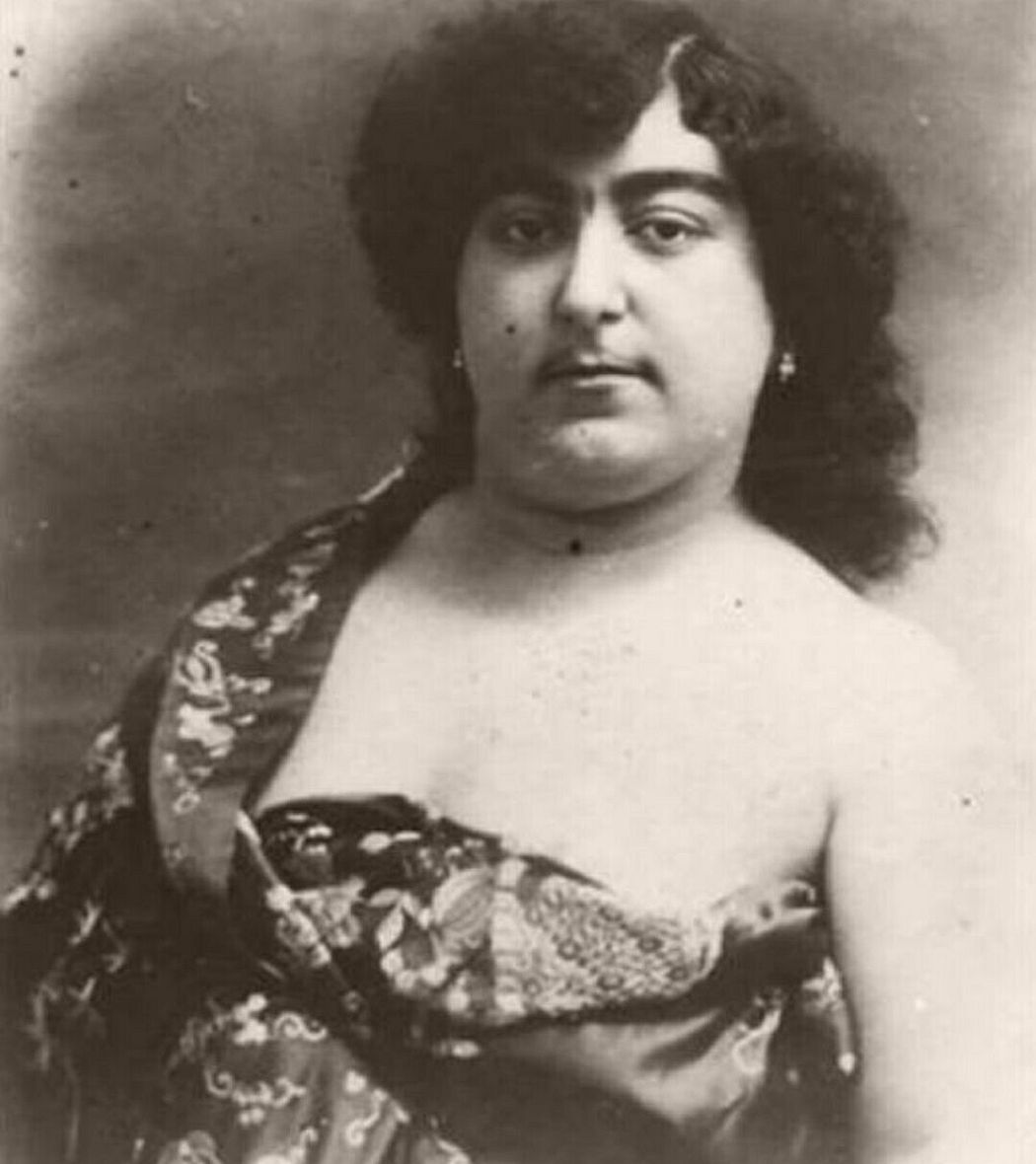
Vintage Zahra Khanom Tadj esSaltaneh Persian princess MONOVISIONS
Zahra Khanom Tadj es-Saltaneh will forever be remembered as a trailblazer for women's rights in Iran. She was a prominent founding member of Iran's underground women's rights group, the Women's Freedom Association, and tirelessly worked towards equal rights for women around 1910. Despite the risks involved, she organized and attended.